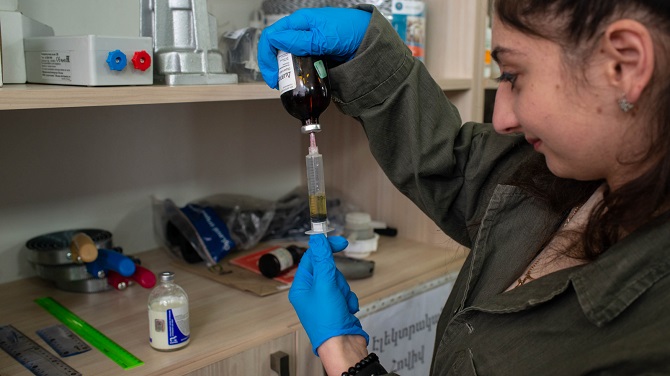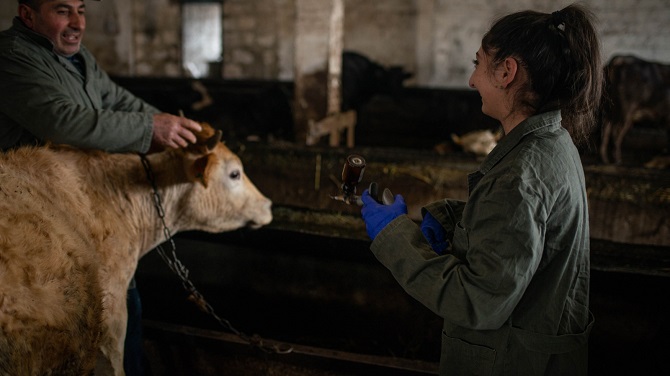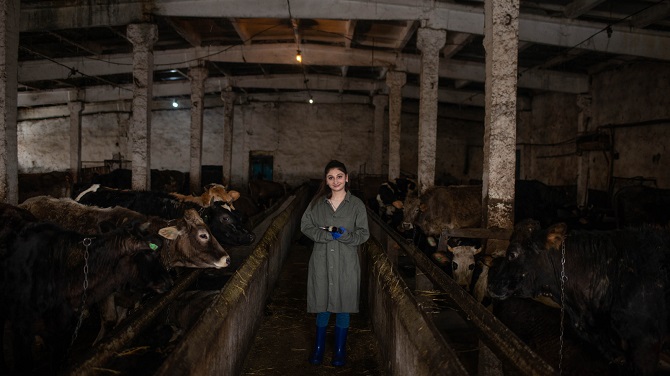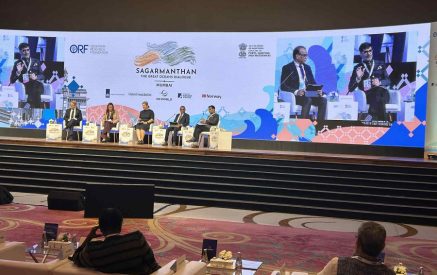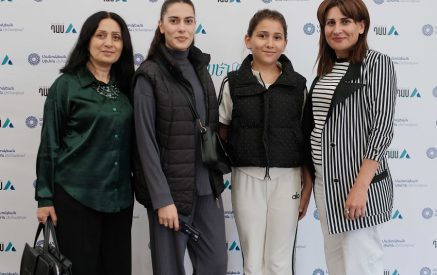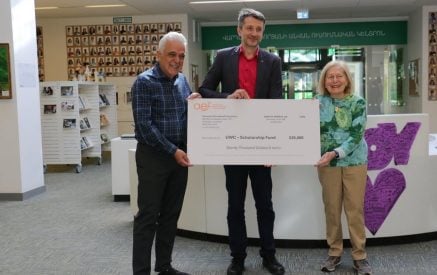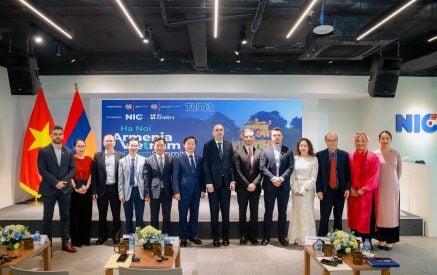EU NEIGHBOURS. Sveta Khachatryan is the first female veterinary student with a disability in the Armenian city of Gavar, Gegharkunik Province.
The 18-year old woman is training in veterinary medicine alongside her main studies at Gavar State Agricultural College. Sveta is learning how to take care of animals as part of an informal education course organised by the EU project EU4Youth – SAY YES Skills for Jobs.
“It started as an interest but then I fell in love with the work. The project has given me the opportunity to get a second profession and learn new skills,” explains Sveta.
The young student is already putting her knowledge into practice and trying to help animals. She says that after graduating from college she wants to open a small farm and work in animal husbandry.
Sveta’s family and friends were not quite as enthusiastic about her new profession:
“My parents did not want me to study veterinary medicine because they thought it was a ‘male subject’. In Armenia this is not a prestigious job and we do not have many female vets, but I like the profession, so I followed my instincts.”
The EU-funded project is developed by World Vision Armenia in collaboration with the Global Development Fund. It is implemented in three Armenian provinces – Ararat, Gegharkunik and Lori, and targets young people aged 15–35.
The project organises vocational trainings based on professions that are in demand in the labour market. The trainings are developed by college teachers, experts from the National Centre for the Development of Vocational Education and employers from relevant sectors. The best-performing students receive help from employers in getting a job. The project takes into account participants’ gender but it faces problems in regions where people have bias towards certain professions, like in the province of Gegharkunik.
Project participant and Director of the Gavar Centre for Veterinary and Agriculture Simon Martirosyan says that 80% of Gegharkunik’s population is engaged in agriculture, but veterinarians are in short supply.
“We have had several farmers’ children pass the training, and now they service their homesteads,” he adds optimistically.
Workplace learning provides young people with practical training in addition to their formal education. It serves as an important bridge between education and work, and the demand for this is particularly high in the rural regions of Armenia.
Author: Roza Hovhannisyan




















































